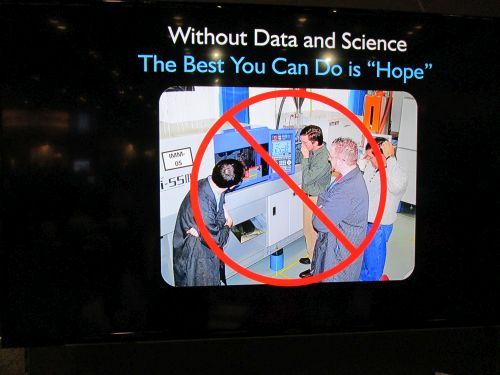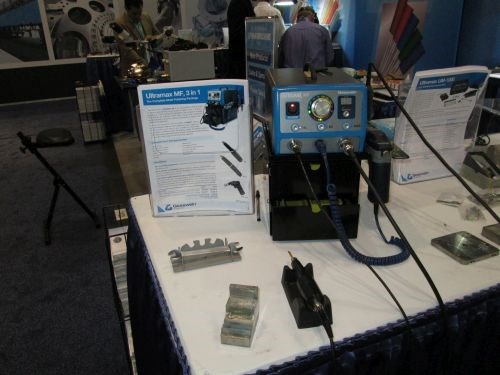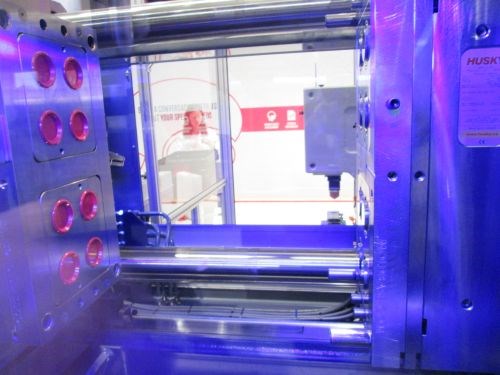The Power of Knowledge
Although technology is the main draw at a show like NPE, equipment and process carry an operation only so far. Here are a few new initiatives in industry education.
Even the most sophisticated processes and technologies are only as effective as the people behind them. Ensuring those people have the knowledge required to take full advantage of modern manufacturing resources was the stated goal of multiple initiatives touted by NPE exhibitors, some of which represented a different approach than companies have taken in the past.
For instance, Beaumont Technologies has long been in the business of educating customers, but its American Injection Molding Institute aims to teach more than just methods and skills. Launched just a few months ago, the Institute also focuses on developing foundational knowledge—that is, not just how to perform a given task, but the principles behind, say, how and why molten plastic shrinks as it cools. One benefit of this type of education is that it fosters the type of critical thinking needed to ensure future advances in the plastics industry are more than just incremental. Providing such foundational knowledge also requires a comprehensive approach, so AIM has adopted a four-part focus on materials; part design; mold design and process; and injection molding.
RJG is another example of a long-term education and consulting services provider that’s moved to introduce a more comprehensive offering in recent years. Touted as a “scientific” approach to design for manufacturing (DFM), the TZero initiative aims to provide a framework of collaboration between engineering and manufacturing. With the latest tools and training from RJG, getting everyone at the same table—including the toolmaker, molder and OEM/brand owner—goes a long way toward identifying potential problems with a project prior to launch, the company reasons.
Not all exhibitors touting educational offerings have historically been focused on education. Gesswein, for example, introduced a polishing class just 18 months ago. This two-day course is said to provide intensive, step-by-step instruction in this process, which remains both essential and largely manual, and introduce trainees to the latest polishing equipment.
Finally, workforce development was a hot topic among mold manufacturers themselves. Whatever workforce development initiatives these companies had in place a decade ago—or even just a year ago, for that matter—the vast majority of shops that spoke to MoldMaking Technology at the show now have some form of apprenticeship program.
Some, of course, are more structured and formal than others. One that stood out is the program at Canon Virginia. Now in place for two years, the program is similar to other models we’ve covered in that students split time between community college coursework and the mold shop. On the floor, hours and progress are carefully monitored at every station, and earning state certification requires adhering to requirements such as maintaining a certain ratio of senior toolmakers to apprentices. During the classroom portion of the program—housed on-site at the company’s own workforce development center—students not only take courses taught by local community college instructors, but also receive training tailored specifically to Canon. Suffice it to say this program is far different from the sort of informal, “shadow the senior toolmaker” approach common to so many mold manufacturing operations in decades past.
These are just a few examples of efforts by NPE exhibitors to address the critical need for knowledge behind the technology and process. More stories and news on educational initiatives can be found in our Next Generation Zone.
Read Next
Reasons to Use Fiber Lasers for Mold Cleaning
Fiber lasers offer a simplicity, speed, control and portability, minimizing mold cleaning risks.
Read MoreHow to Use Continuing Education to Remain Competitive in Moldmaking
Continued training helps moldmakers make tooling decisions and properly use the latest cutting tool to efficiently machine high-quality molds.
Read MoreAre You a Moldmaker Considering 3D Printing? Consider the 3D Printing Workshop at NPE2024
Presentations will cover 3D printing for mold tooling, material innovation, product development, bridge production and full-scale, high-volume additive manufacturing.
Read More




















